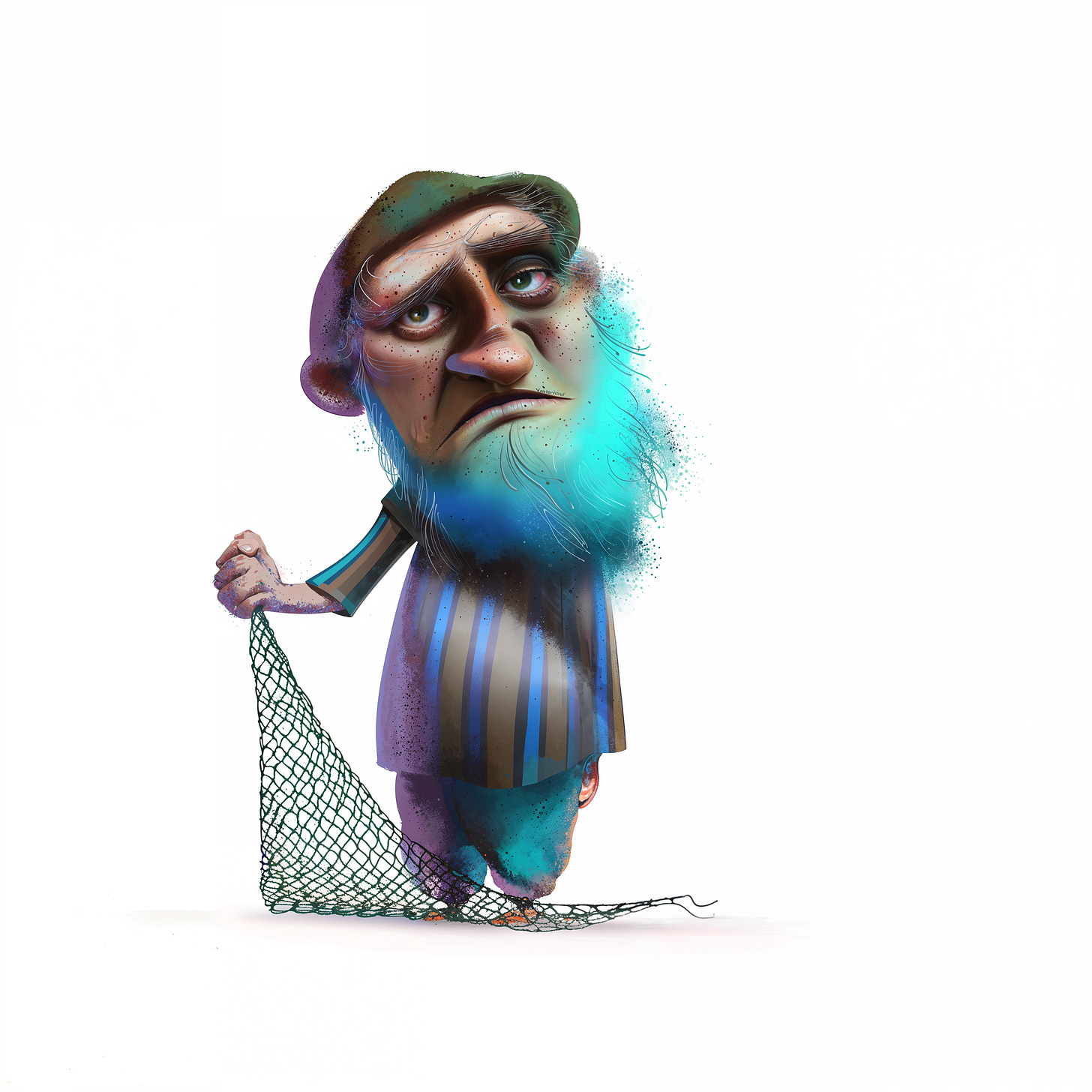My grandfather once told me: “The world is made up of fishermen and farmers”.
That's it.
Naturally, for a 12 year old in the middle of his summer holidays ~ I blinked up at him, confused by this unprompted sagely outburst.
He afterall did neither, and worked at a bank.
Then he promptly went back to chopping up lemons before dinner was ready and I thought nothing more about it.
It is only as I have gotten older that this has stuck with me and seems truer with every year that passes. This dichotomy, at first glance, may seem reductionist, but it reveals deeper insights into human nature and our approach to life's resources.
Fishermen cast their nets wide, capturing everything within reach. Their strategy is opportunistic and immediate. They thrive on abundance, seizing the moment, and when resources dwindle, they move on without hesitation. This is reflected in many business practices today. Companies launch products, capitalize on market trends, and pivot to new opportunities when the current ones are exhausted. The technology sector often mirrors this mindset, with a focus on rapid acquisition and swift consumption.
Farmers, in contrast, cultivate and nurture what they have, investing time and effort to make it grow. Their approach is patient, deliberate, and sustainable. Farmers understand the value of consistency and long-term planning. This mindset is evident in businesses that prioritize steady growth, brand loyalty, and sustainable practices. Think of family-owned businesses that, over generations, build a reputation for quality and reliability.
In the span of five years, I have seen one hype train after the next scream out of the station – billowing steam and clouds filled with promise in their wake – only to sputter out on the track. Unfortunately, no connecting service coaches were arranged for the passengers who were aboard.
Crypto – flop. NFTs – flop. Web3 – flop. Metaverse – flop. And AI? Who knows?
What's worse is our collective amnesia.
It feels like fishermen have taken over everything, caught everything in their nets, and now are frantically checking every last lobster pot, prying limpets from the rocks.
I read an article by a triumphant tech bro, who, with a kind of sharklike mania, described how AI agents will eventually do the work of an entire office, making the need for whole departments obsolete. Even assuming that this is possible – why? Who for? What happens next? Will AI also be trained to buy those goods and services, and ultimately reach escape velocity and form a parallel economy?
Brands too, storied luxury brands as well, seem to make decisions in the interest of impressing shareholders and investors rather than attracting customers. Pundits scry the news, unsure why brand X would do this or brand Y would do that, unaware that it is kabuki, a shadow dance for a different audience.
Reflecting on my grandfather’s wisdom, the current state of business and the way we view success come into sharp focus. Today, the ethos of the fisherman seems dominant. Companies often prioritize short-term gains, focusing on stock market performance and shareholder dividends above all else. Layoffs are frequently touted as strategic moves to cut costs and boost profits, even when companies are reporting record earnings. This relentless pursuit of financial metrics can seem to overshadow the human cost and the long-term health of the organization.
This raises a critical question: for what purpose? The immediate bump in share value may please investors, but it often comes at the expense of employee morale, innovation, and the company’s reputation. The short-term gain for shareholders can undermine the long-term stability and success of the business, much like a fisherman depleting a fishing spot and moving on, leaving behind a barren ecosystem.
On the other hand, there are still examples of the farmer’s approach in the business world. Companies that invest in their employees, focus on sustainable practices, and build a loyal customer base may grow more slowly, but they often enjoy more enduring success.
I have real hope in many of the challenger brands and smaller heritage companies who are doubling down on quality, customer value, and meaningful brand experience.
These companies understand that real growth comes from nurturing and development, rather than quick wins.
In my own field, it can often be frustrating to have to fight for brain space with some of the fads listed above; in full knowledge that they will come and go with the wind, while smart, focused brand experience delivers value every time.
I hope that you enjoyed my little cri de coeur. My hope is that we can begin to think about how we balance immediate gains with long-term vision, ensuring that in our quest for success, we don’t lose sight of what truly matters.





Life & society are a neverending new beginning